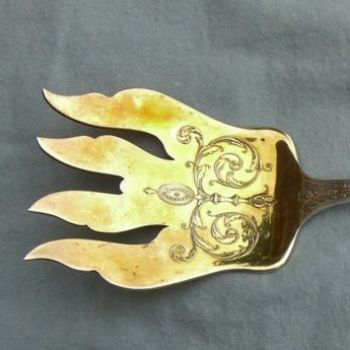Abraham and David Roentgen
Famous German Cabinetmakers of the 18th Century
-
Abraham Roentgen (1711–1793) and his son David (1743–1807) were the most successful cabinetmakers in Continental Europe in the eighteenth century. The halcyon days of their workshop marked the end of the ancien régime, when grand works of art—among them some of the finest achievements in furniture making—underscored the might of sovereigns, aristocrats, and affluent patricians.
-
Roentgens' Berlin Secretary Cabinet
-
Wikipedia - David Roentgen
-
The MET's YouTube Channel
Check out the Metropolitan Museum of Art's Youtube Channel for more of Roentgen's pieces. -
Abraham and David Roentgen - the MET





























Join the Discussion
Wow! Mechanized furniture is something that I would have never thought to be made. This is crazy decadent. I wonder how many of these or similar were produced.
So far as I can tell, artisans such as Roentgen would cater to the rich so there would be a lot of one of pieces. Reading the MET's article it seems to me that they had a warehouse of furniture, so perhaps they made slightly less fancy pieces for the general public?
I know mechanized furniture, although not necessarily rare, is harder to find than just regular furniture. When things went out of fashion they were usually put in storage where they rotted away (due to improper storage) or destroyed. A lot of Chippendale pieces ended up like this - cut to pieces for the legs or a part that could be reused, or hidden away in barns. My mother, growing up in Ireland, knows many antiques that were out of fashion would be chucked on the bonfire. My father, originally from the Netherlands, would bike past piles of antiques being thrown out. On top of this, the mechanisms would usually be hidden and known only to a few people - if someone died or wasn't aware, a lot of these mechanized pieces of furniture sit without people knowing of their secret compartments.
Super elaborate pieces would be rare because they were almost the price of a country estate at the time. Pieces that were less elaborate would be lost to changing fashions or forgotten over the years.